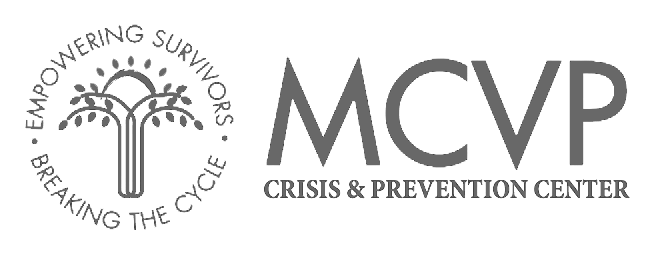GET HELP NOW
Lyn Schollett is the executive director of New Hampshire Coalition Against Domestic and Sexual Violence in Concord. She said Wednesday’s report shows just how prevalent sexual harassment is in the workplace. “Employers really need to have strong policies and they need to take every report of sexual harassment seriously,” Schollett said.
She said at their crisis centers last year, 116 people came in specifically to seek help after being sexually harassed at work. “What we know is many more victims don’t come forward for the exact reasons outlined in this report, because they are afraid of losing their job,” Schollett said.
While the bill has broad support, some members of the victim advocacy community – including the New Hampshire Coalition Against Domestic and Sexual Violence – said they can’t fully endorse the proposal. The coalition supports the regulation and oversight of visitation centers but it opposes the use of state tax dollars to fund their expansion in New Hampshire.
“We feel that the establishment of 10 brick-and-mortar visitation centers across the state sends the wrong message to courts: that the rights of a violent parent supersede a child’s physical and emotional right to safety,” said Amanda Grady Sexton, the coalition’s public affairs director. Instead, she said, the coalition believes in strengthening the state’s existing child protection laws to ensure mechanisms are in place so that an abusive parent is held accountable prior to being granted visitation or custody rights. “Officer Baxter’s example of a man coming to a visitation center with a loaded gun is exactly why I oppose this bill,” said Massachusetts attorney Karen McCall, who worked in legal services in New Hampshire and, at one time, the coalition. “Expanding supervised visitation centers is a green light to the judicial system to feel like they have a safe place to send people who have no business being around their children.”
The surviving family members of murder victims whose cases have gone cold offered heart-wrenching accounts of loss at a legislative hearing on Tuesday, hoping to convince lawmakers to expand the state’s Cold Case Unit by adding two more attorneys.
Kathy Lynn Gloddy, 13, was last seen on the evening of Nov. 21, 1971, near downtown Franklin. Her body was found the next day. “I will never give up faith that the people who killed my sister will be brought to justice,” said Janet Gloddy Young, whose sister, Kathy Gloddy, was found raped and beaten to death in 1971 in the woods off Chance Pond Road in Franklin. “Her case has never been solved, but I know in my heart that it still can be,” she said.
The bipartisan legislation has the full support of the Attorney General’s Office, which says the positions are necessary to make a serious dent in New Hampshire’s unsolved murder cases.
“Our victims deserve justice,” MacDonald told lawmakers Tuesday. “Our 128 families deserve answers. And there is no statute of limitations for the crime of murder.” For the families, the extra manpower offers the chance for something more: closure. Many seeking updates on their cases have endured twists and turns. Janet Gloddy Young last saw her sister in November 1971. Kathy Gloddy, 13, was found in Franklin, Young told the committee. She had been raped, run over and killed. Through the years, Young kept after the investigation even when her faith in state and local police dimmed. She told her story in 2009 to push to get the cold case unit opened in the first place, and then kept an open mind as she waited for new leads that didn’t come. Ten years later, Young said a more robust investigative team could make the difference. “Her case has never been solved, but I know in my heart that it still can be,” she told the committee.
"The last time I saw my sister alive was Sunday, Nov. 21, 1971," said Janet Gloddy Young, the sister of victim Kathy Lynn Gloddy. "It makes 48 years now."
There are 128 unsolved murders classified as cold cases in New Hampshire. State Attorney General Gordon MacDonald said recent advances give investigators opportunities to close cases that were once considered unsolvable. "New technologies and new forensics literally every day provide new opportunities in many of these cases," MacDonald said. If the bill is passed, the two attorneys would cost the state $220,000 in fiscal year 2020. MacDonald said it's a price that should be paid. "Our victims deserve justice," he said. "Our 128 families deserve answers."
Amanda Grady Sexton, director of public affairs for the New Hampshire Coalition Against Domestic and Sexual Violence, noted that FBI statistics show that New Hampshire has a higher rate of rape than the rest of the country.
“We should be focusing our efforts on preventing sexual violence and trafficking, not on making New Hampshire a magnet for traffickers and pimps,” Sexton said.
Among those in attendance was Tiffany Roberts, a survivor of domestic and sexual violence. Now she's an advocate for victims.
“We still have so much work to do,” she said. “There's been so much sharing of stories, but we need to honor that with action.”
"Should this shutdown continue beyond when those funds are available, crisis centers in New Hampshire won't have the resources to be able to provide life-saving services," said Madison Lightfoot with the New Hampshire Coalition Against Domestic and Sexual Violence.
But what could be going away, according to advocates at the Turning Points Network, is key federal funding. Officials say just over 50 percent of the group's overall budget is made up of federal funds.
"The one in particular that concerns us right now is our transitional housing program. It is the program that we are able to use to help survivors get right into permanent housing," said Turning Points' Debra Mozden. There are also 12 shelters throughout the state that give sexual assault victims a place to stay. The Claremont shelter is already funded through the end of June. But with the government shutdown ongoing and no end in sight, women staying at the shelter are already worrying about possibly being forced to find a new home. "Genuine anxiety about what is going to happen in their lives," said Rep. Kuster. She has shared her own sexual assault story in the past and says it's an issue that affects people in all walks of life. "These are woman that are in transition. They are trying to leave abusive relationships. They are trying to get started in their own world and their own financial security."
“The federal shutdown is having a devastating impact on victims of domestic and sexual violence and their children across the nation,” said Amanda Grady Sexton, director of public affairs at the NHCADSV. “Crisis centers rely on federal funding to help survivors access emergency housing, to ensure that victims of sexual assault have support when going to the hospital for a rape kit, and to help victims of stalking develop a safety plan for themselves and their children.”
|
Archives
June 2024
Categories |
Our Supporting Partners
The 12 member programs of the New Hampshire Coalition Against Domestic and Sexual Violence provide services regardless of gender,age, health status (including HIV-positive), physical, mental or emotional ability, sexual orientation, gender identity/expression, socio-economic status, race, national origin, immigration status or religious or political affiliation.
Funding for this website was provided by The Corporate Fund.
New Hampshire Coalition Against Domestic and Sexual Violence
PO Box 353, Concord, NH 03302-0353
(603) 224-8893
New Hampshire Coalition Against Domestic and Sexual Violence
PO Box 353, Concord, NH 03302-0353
(603) 224-8893
NH web design by Harbour Light Strategic Marketing

 RSS Feed
RSS Feed












